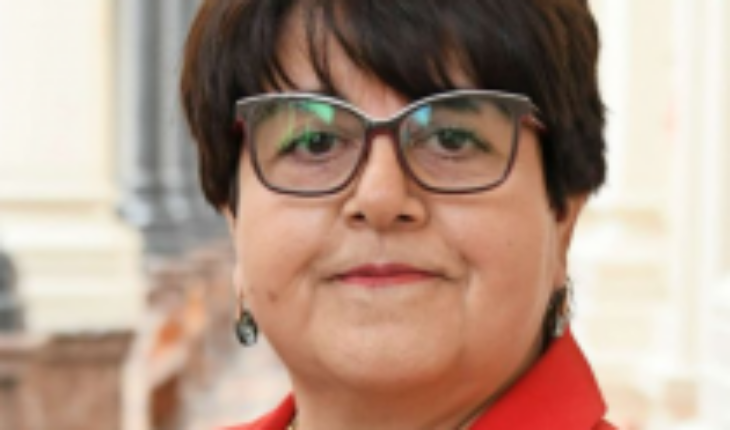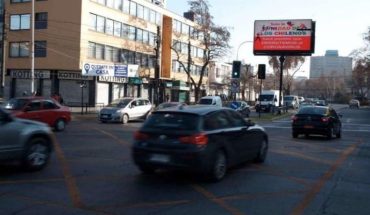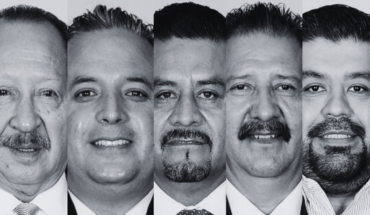The list of the five ministers proposed by the Supreme Court to replace retired Judge Rosa Egnem, who reached the highest age to hold office, is already in the hands of President Gabriel Boric.
The President shall propose his election to the Senate, which is responsible for ratification by two-thirds of its members in office.
After listening to the 12 postulant ministers, in a special telematic session, the plenary session of the highest court proceeded to the vote of rigor. And the quina was formed on May 17 (in order of rank) as follows: Sergio Mora Vallejos, minister of the Court of Appeals of Coyhaique (included in his own right); Roberto Contreras Olivares, Minister of the Court of Appeals of San Miguel; María Soledad Melo Labra, Minister of the Court of Appeals of Santiago; Jessica González Troncoso, minister of the Court of Appeals of Santiago and Marcia Undurraga Jensen, minister of the Court of Appeals of Valdivia, who was included by lot, having obtained the same number of votes as Minister María Carolina Catepillán Lobos, of the Court of Appeals of San Miguel.
According to the government’s definitions as feminist and parity and given the current composition of the Court: 21 members: 13 men and 8 women, President Boric is expected to lean towards one of the three lawyers.
Among them, the favorite of the members of the supreme court would be María Soledad Melo Labra (who has already been in other quinas), a member since 2010 of the Court of Appeals of Santiago and who has participated in well-known human rights cases. Among them the acquittal of 6 retired army officers of their responsibility in the crime of embezzlement of public funds, in the so-called Riggs case (June 2017), while ordering the return of the money and property confiscated from the family of the late former dictator Augusto Pinochet. Or in December 2019, when the Court of Appeals of Santiago sentenced two former agents of the Directorate of National Intelligence (DINA) Pedro Octavio Espinoza Bravo and Miguel Krassnoff Martchenko to 10 years and one day in prison, for their responsibility in the qualified homicide of Fernando Abraham Valenzuela Rivera (November 1974). The letter adds: “It is foreseen that the minister Mrs. Melo was about to accept the minorante of half prescription alleged by the defenses (…)”. That is, it was by half prescription for the murderers. In this ruling also participated the candidate of the quina, Jessica González.
He was also for the half prescription as part of the Ninth Chamber of the high court —also composed of Ministers Patricio Villarroel and Ana Cienfuegos— which determined the sentence of 5 years in prison, granting the benefit of probation, for the former Agents of State: Patricio Román Herrera, Pedro Vivian Guaita and Francisco León Jamett. They were about to lower the ruling issued by Minister Mario Carroza, who had sentenced agents Román Herrera and Vivian Guaita to sentences of 6 years in prison, and León Jamett, to three years and one day.
For her part, Jeanette González stands out for having been in charge of the Karadima case, where she investigated the abuses of the former parish priest of El Bosque.
Minister Marcia Undurraga Jensen began her judicial career as Secretary of the Court of Letters of Valdivia; later, she was Rapporteur of the Court of Appeals of Valdivia. After other important assignments, she was president of the Court of Appeals of Rancagua and now serves in the Court of Appeals of Valdivia.
Retirement at 75
This election comes amid the discussion of the transitional rules in the Constitutional Convention that has proposed the retirement of magistrates on their 70th birthday. But it was agreed that as long as the new Magna Carta does not enter into force, the deadlines in force in the current Constitution will be respected. That is, it is established that “the cessation of functions at 70 years of age will not be applicable to judges who at the date of entry into force of this Constitution are part of the Primary Scale of the Judicial Power.” Thus leaving behind the possible departure of the ministers of the Supreme Court.
In this way, the person elected by the President may be up to the age of 75 in his capacity as a judge of the Supreme Court.
It should be noted that the next appointments that the current president must make are to replace Minister Guillermo Silva this year, while in 2023 he should do the same with Haroldo Brito and Jorge Dahm. A year later, Juan Eduardo Fuentes and 2025 must finish his career María Teresa Letelier.
Follow us on





